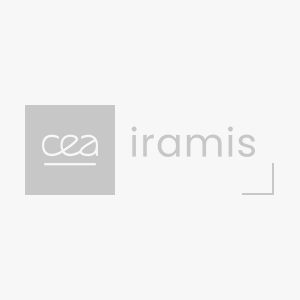Domain, Specialties : CHEMISTRY
Keywords: Nanomaterials, photocatalysis, analytical chemistry
Research Unit : NIMBE / LEDNA
Summary
Per- and polyfluoroalkylated substances (PFAS) are highly persistent and resistant to degradation. This internship aims to investigate the potential of nanodiamonds as a source of solvated electrons for the photocatalytic degradation of these PFAS.
Full description
Per- and polyfluoroalkylated substances (PFAS) are extremely persistent molecules that are difficult to degrade, and are ubiquitously present in groundwater and soil. Their stability lies in the robustness of the C-F bonds, requiring reductive processes for their degradation. Although electrochemical approaches are possible, they require high cathodic overvoltages, making them unsuitable for aqueous environments. A promising alternative is to use hydrated electrons (eaq-), mainly generated by UV irradiation of soluble anions such as sulphite ions. Although this method can degrade PFAS, it is limited by the formation of undesirable by-products.
Diamond, and in particular hydrogenated nanodiamond, is now recognized as a solid source of solvated electrons under UV illumination [1]. Very recently, in 2023, an American team explored the use of hydrogenated nanodiamonds as catalysts and a source of solvated electrons for the degradation of perfluorooctanesulphonate (PFOS) with promising results [2].
The aim of this internship is to further investigate how nanodiamonds can be used as catalysts for the degradation of polluting PFAS. It will be carried out at CEA NIMBE, located on the CEA Paris-Saclay site, in collaboration between two teams: LEDNA team, expert in the synthesis and characterization of hydrogenated nanodiamonds, and LCMCE team, specialist in homogeneous and heterogeneous catalysis for reduction processes. The aim is to explore the performance of hydrogenated nanodiamonds of different types (detonation, from grinding) produced by LEDNA team [3]. The photocatalytic reaction will be carried out on the benches present at the LEDNA team or on those present at the LCMCE team, depending on the required illumination wavelengths. The degradation of PFAS and the catalytic processes will be monitored at the LCMCE team using LC-MS. The possibility of generating solvated electrons at longer wavelengths, in particular under visible light, for the degradation of PFAS will be explored using hybrid nanodiamonds whose surface will be made up of reconstructions of sp2) carbon as well as nanodiamonds decorated with gold particles.
The trainee will develop skills in the synthesis and characterisation of nanomaterials, photocatalysis as well as in analytical chemistry. The techniques used will mainly be DLS/Zetametry, infrared and Raman spectroscopy, photoelectron spectroscopy, electron microscopy, LC-MS and NMR.
[1] F. Buchner, T. Kirschbaum, A. Venerosy, H. Girard, J.-C. Arnault, B. Kiendl, A. Krueger, K. Larsson, A. Bande, T. Petit, C. Merschjann, Nanoscale 2022, 14, 17188-17195.
[2] W. A. Maza, V. M. Breslin, T. I. Feygelson, P. A. DeSario, B. B. Pate, J. C. Owrutsky, A. Epshteyn, Applied Catalysis B: Environmental 2023, 325, 122306.
[3] L. Saoudi, H.A. Girard, E. Larquet, M. Mermoux, J. Leroy, J.C. Arnault, Colloidal stability over months of highly crystalline high-pressure high-temperature hydrogenated nanodiamonds in water, Carbon 2023, 202, 438–449.
Location
CEA Saclay, (91) Essonne, France
Internship conditions
- Internship duration: 6 months
- Level of study: Bac+5
- Training: Master 2
- Continuation in PhD thesis: Yes
- Application deadline: 3 février 2025
Experimental skills
Language : English
Useful methods and technics:
DLS/Zetametry, infrared and Raman spectroscopy, photoelectron spectroscopy, electron microscopy, LC-MS and NMR.
Links
- Web site of the laboratory: https://iramis.cea.fr/en/nimbe/ledna/
- Personal Web page of the supervisor
- Other link Laboratory NIMBE/LCMCE: https://iramis.cea.fr/en/nimbe/lcmce/
Supervisor
Hugues GIRARD
Phone: +33 1 69 08 47 60
Email :


